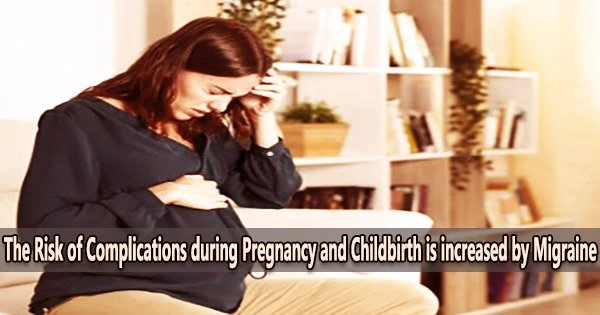Although many migraine sufferers find that the frequency and intensity of these incapacitating headaches reduce during pregnancy, migraines are increasingly related to high blood pressure, abortions, caesarean sections, preterm births, and low birth weight newborns.
This is supported by a comprehensive register-based study that was conducted at the Department of Clinical Epidemiology at Aarhus University and Aarhus University Hospital in Denmark and was just published in the academic journal Headache.
“The study shows that pregnant women with migraine more often have complications in connection with their pregnancy and childbirth than women who don’t suffer from migraine. Newborn babies whose mothers suffered from migraine during pregnancy also have an increased risk of complications such as respiratory distress and febrile seizures,” says Nils Skajaa, BSc, who is the study’s lead author. He is employed as a researcher at the Department of Clinical Epidemiology, Aarhus University, and Aarhus University Hospital.
The study’s authors examined the Danish health records to locate more than 22,000 migraine-affected pregnant women who had visited a hospital or had been given at least two prescriptions for migraine medication. The group was contrasted with a group of pregnant women without known migraine that was roughly ten times larger.
The study was not specifically designed to examine this aspect. However, we show that the risk of complications generally was lower for pregnant women with migraine who took medication when compared with the pregnant women with migraines who were not treated. This also indicates that the migraine medication isn’t the cause of the complications, but rather the migraine itself. This is important knowledge for pregnant women with migraines.
Nils Skajaa
According to one study conclusion, pregnant women with migraine have a 15–25% higher risk of having a caesarean section than pregnant women without migraine. In Denmark, caesarean sections account for about 20% of deliveries.
Researchers have also concluded that migraine treatment may reduce some of the problems using the same data. However, the results must be interpreted with caution, as Nils Skajaa explains:
“The study was not specifically designed to examine this aspect. However, we show that the risk of complications generally was lower for pregnant women with migraine who took medication when compared with the pregnant women with migraines who were not treated. This also indicates that the migraine medication isn’t the cause of the complications, but rather the migraine itself. This is important knowledge for pregnant women with migraines,” says Nils Skajaa.
Migraines are relatively common and affect twice as many women as men. Although the precise cause is still unknown, prior research indicates that stress, exhaustion, or hormonal changes like pregnancy may be migraine triggers.
“Paradoxically, women of childbearing age are particularly hard hit by migraines. Although experience shows that migraines become milder during pregnancy, this study emphasises that the healthcare service should be particularly aware of pregnant women with migraine,” says Nils Skajaa.





